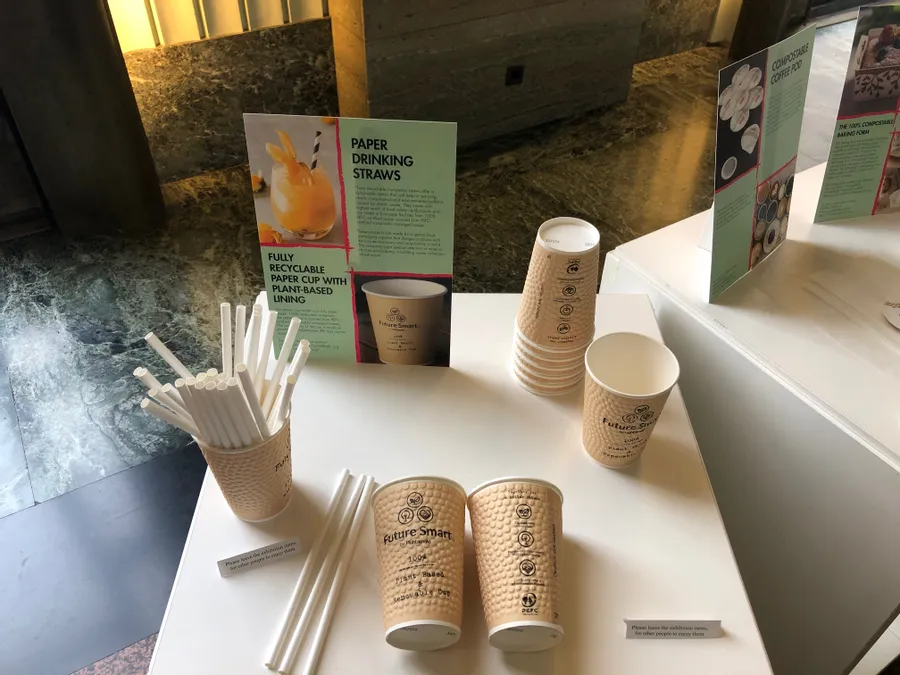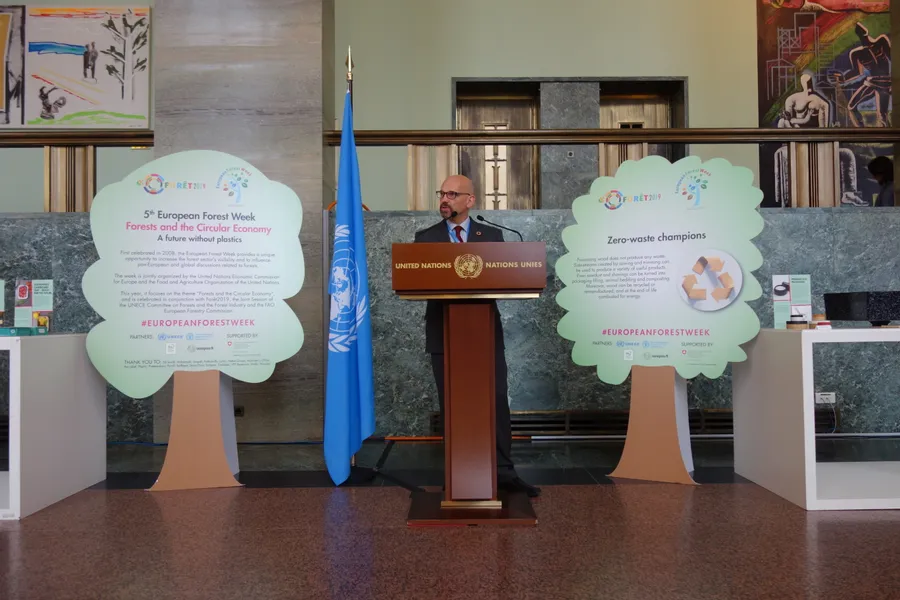Forests and the Circular Economy: A future without plastics
The forest sector can offer innovative solutions to global challenges as part of a circular economy.
Forests and the Circular Economy: A future without plastics
5 November 2019 Event report
You want to order online but hate the non-recyclable packaging material used in e-commerce in addition to cardboard? You are a restaurant owner and want to cut down on the dozens of Styrofoam boxes that your fish is delivered in every day? You are thinking of building a house but worry about the carbon emissions linked to using concrete and steel?
It can seem difficult to find adequate alternatives for these seemingly ubiquitous, carbon-intensive materials, but alternatives do exist. Recyclable packaging and wood-based construction materials are already here and ready to be used on a much bigger scale.
The exhibition Forests and the Circular Economy. A future without plastics, opened yesterday at the Palais des Nations in Geneva. It showcased some of the many renewable and sustainably sourced products that the forest sector can offer, providing solutions to global challenges as part of a circular economy.

As part of the exhibition, we teamed up with Huhtamaki and PIVETEAUBOIS to bring some exciting and innovative forest-based materials to the halls of the UN in Geneva.
Huhtamaki’s paper cups are made from fully plant-based, 100% renewable material, including the inside lining. Huhtamaki's recyclable non-plastic straws are a sustainable option that will help in reducing plastic consumption and environmental pollution caused by plastic waste. Both are made from PEFC-certified materials.

PIVETEAUBOIS’s cross laminated timber (CLT) provides innovative solutions for the construction sector. The product is designed for structural elements, such as shear wall, bracing, floor and roof panels for all types of construction projects (housing, commercial and retail buildings). It is available in PEFC-certified Douglas Fir, Pine or Spruce.
“Wood-based industries have a significant capacity of recycling that has been strongly imbedded in their operation for decades. Forests also are powerful actors in climate change mitigation,” said Olga Algayerova, UNECE Executive Secretary, as she opened the exhibition.
The use of wood-based products instead of carbon-intensive materials such as plastics, steel, and concrete, for every-day objects and construction would contribute to mitigating climate change, which harms forests, thus diminishing their ability to absorb carbon emissions, which in turn accelerates climate change. In recent years, forests have suffered from increased storms, beetle infestations, and wild fires that are likely to have been caused by climate change related weather events such as heat waves.
"Responsible innovation can provide recyclable, biodegradable and durable wood-based products," highlighted Ben Gunneberg, PEFC International CEO. "And if sourced responsibly from forests managed in line with strict environmental, social and economic requirements, forests can provide sustainable materials that are renewable on a large scale."
The exhibition will be on show from 4 to 15 November 2019 at the Salle des Pas Perdus of the Palais des Nations as part of the European Forest Week, held in conjunction with Forêt2019, the joint session of the UNECE Committee on Forests and the Forest Industry and the FAO European Forestry Commission.
The exhibition was organized by the UNECE/FAO Forestry and Timber Section in cooperation with PEFC International, and Uusi puu – the New Wood Project, a network of Finnish organizations aimed at promoting a wood-based bioeconomy. Comprising more than 20 organizations ranging from forest owners and small and large companies to research institutions, the network aims at highlighting new and existing wood-based products and their impact on society.
